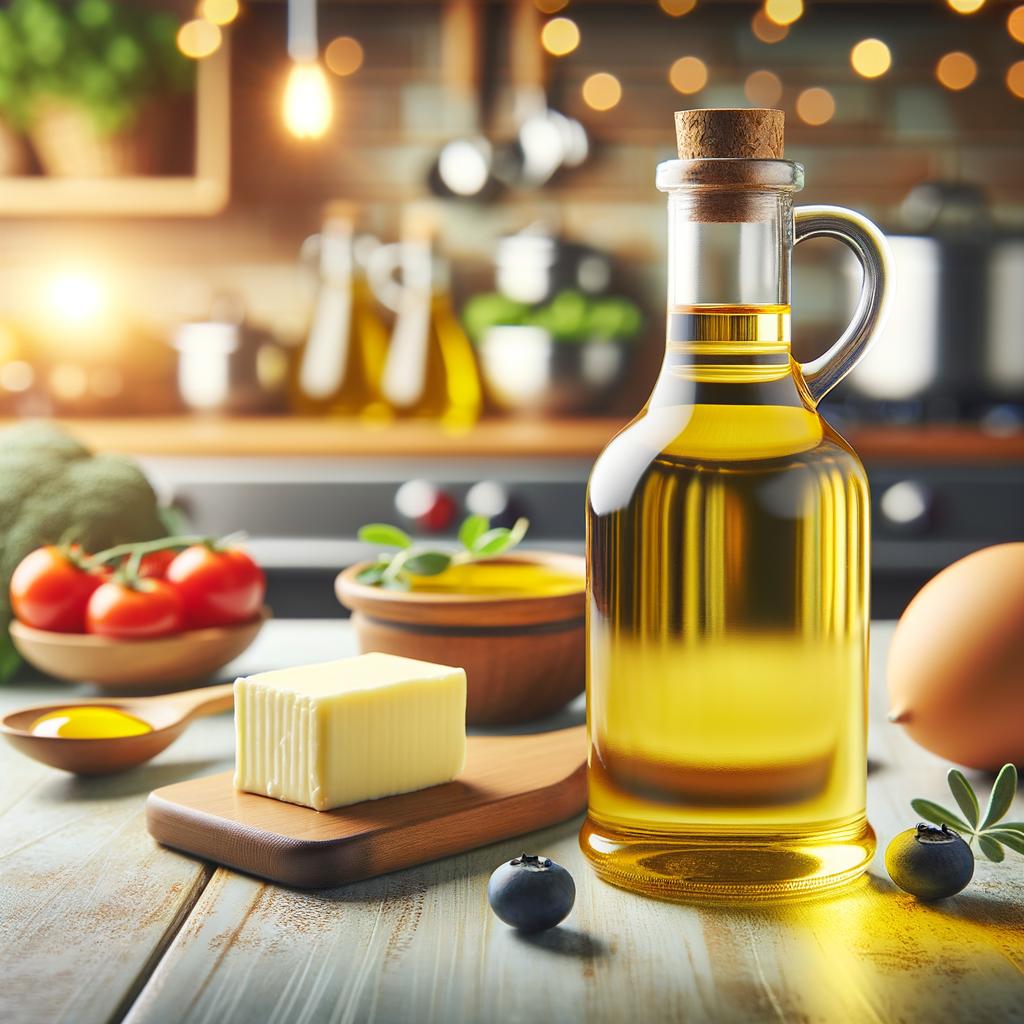Vegetable Oil or Ghee

Description
Vegetable oil, a staple in kitchens worldwide, is a clear, amber liquid known for its neutral flavor. This versatile ingredient has a smooth texture that lends a glossy sheen to foods. Derived from various plant sources, such as sunflowers, soybeans, and olives, its taste varies subtly depending on its origin. Ghee, on the other hand, is a golden, fragrant fat that is a cornerstone of Indian cuisine. This clarified butter has a rich, nutty flavor and a velvety texture that adds depth to any dish. Its unique characteristic is its high smoke point, which allows it to withstand high cooking temperatures without breaking down.
Primary Uses
Vegetable oil is a jack of all trades in the culinary world. It is used for sautéing, deep-frying, baking, and as a base for dressings. Its versatility spans across cuisines, from the stir-fries of Asia to the pastries of Europe. Ghee, while traditionally used in Indian and Middle Eastern cuisines, has found its way into contemporary cooking due to its rich flavor and health benefits. It is used in everything from sautéing spices, to drizzling over bread, to the final gloss on a biryani. In Ayurveda, ghee is also used medicinally, believed to aid digestion and strengthen the immune system.
History
Vegetable oil's history is intertwined with the agricultural practices of ancient civilizations. From the olive groves of the Mediterranean to the soybean fields of East Asia, each culture has its own tale of discovery and use. Ghee, meanwhile, has a romantic history steeped in the ancient rituals of India. It was considered sacred and used in religious ceremonies, its golden hue symbolizing purity and enlightenment. Over time, both these ingredients have evolved from their traditional roles, finding new uses in modern kitchens worldwide. They each carry with them a story of cultural heritage and culinary evolution.
Nutritional Information
While both vegetable oil and ghee are high in calories, they offer distinct nutritional benefits. Vegetable oil, particularly olive and canola, is rich in heart-healthy monounsaturated fats and vitamin E. Ghee, on the other hand, is a source of vitamins A, E, and K, along with several other minerals. It is also rich in butyric acid, a short-chain fatty acid that promotes gut health. However, moderation is key, as both oils are high in saturated fats. When compared to butter, ghee has less dairy proteins, making it a suitable option for those with lactose intolerance. The stories of these two ingredients serve as a reminder that food is not just about sustenance, but also about the rich tapestry of our cultural histories and personal well-being.

